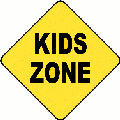What the Fork?
Video games harbor potential dangers to children. So do forks. The reason forks do not grab as many headlines is two-fold. First, all adults understand forks and ridicule those who use them to self-inflict injury. Second, parents, at least responsible parents, do not allow their children unsupervised access to forks until the children have demonstrated proficiency and responsibility with the utensil.
not allow their children unsupervised access to forks until the children have demonstrated proficiency and responsibility with the utensil.
Of Video Games and Virtual Worlds
Most parents are at least familiar with the concept of video games. Children play them against the computer, or against someone else in the room. Some video games allow children to play against people across the street or across the globe. The largest of these games create massive online environments for players to explore. These “virtual worlds” generate billions in revenue, some even allowing millions of people to play simultaneously. Each virtual world has its own set of rules and etiquette. Anonymous players create characters for themselves, and interact online with another anonymous characters. Communities gravitate around common interests, such as role-playing, first person shooters, real-time strategy, sports, social interaction, as well as many others. Two of the most popular virtual worlds are Second Life and World of Warcraft.
What Are The Dangers?
Video games come with handy parental ratings to indicate how much blood, drugs and sex the child will encounter in the game. But what about virtual worlds? Players have sued, propositioned and even killed other players in real life as a result of events which took place in virtual worlds. What the media fails to report however, is that these incidents are incredibly rare. The Federal Trade Commission (FTC) has just released a report entitled Virtual Worlds and Kids: Mapping the Risks. Surprisingly, the report found very little sex or violence in virtual worlds accessed by minors.
Why Are Virtual Worlds So Safe?
Most parents have little exposure to virtual worlds and legislators are often even more clueless. So why then are virtual worlds so safe? One reason kids are exposed to far less sex and violence in virtual worlds as compared to the rest of the internet is greed. Virtual worlds are for profit ventures. Main stream media constantly lurks for that one incident it can use to leverage every parent’s fear of the unknown. As detailed in the FTC report however, virtual worlds invoke terms of service, age-screening, age segregation and community policing to prevent the exploitation of children. While it is not impossible for children to circumvent these security measures, there are far easier ways for children to access inappropriate content online, than through a virtual world.
In Loco Parentis
So if virtual worlds have their own screening system in place everything is good right? Wrong. Even though your child may not be exposed to sex, drugs and violence in a virtual world, they will be exposed to adults behaving like adults. The complex character interactions in virtual worlds are no substitute for parental instruction. Just like with a fork, it is your duty as a parent to investigate the games and environments your child frequents online to ensure that your child demonstrates the requisite proficiency and responsibility to avoid trouble. Better yet, why not actually take a couple hours out of your week and join your child online. At worst, simply listening intently to your child describe to you an activity he or she loves will bring you closer together. At best, you may create some indelible memories.





Recent Comments